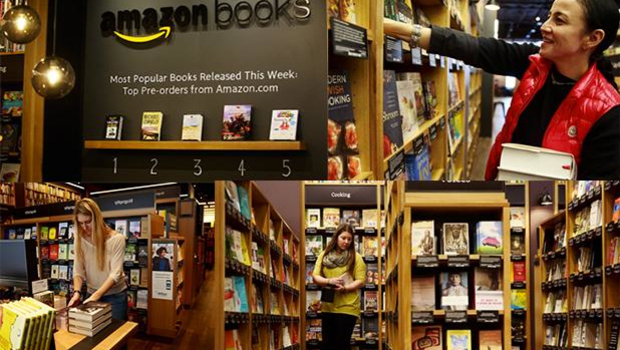In a time where here in Australia we've seen the closure of many bricks and mortar book stores over recent years, online book retailing giant Amazon.com Inc is expected to open 300-400 stores across the US in the near future.
Such an expansion, which Amazon itself has not confirmed, would position the world's No. 1 online retailer as a competitor to booksellers such as Barnes & Noble Inc.
Amazon recently opened its first bookstore in Seattle's University Village, where visitors also able to test-drive Amazon's Kindle, Fire TV and other devices.
In Australia, bookstores have fought to stay afloat, with the industry’s revenue estimated to contract by an annualised 10.6% over the five years through 2015-16. A host of issues have plagued industry operators during this period, including falling sales volumes, downward pricing pressure, strong competition from online operators and external players, and a shift in the buying habits of consumers.
Profitability has trended downwards due to the erosion of product margins. Industry performance has also been affected by fluctuations in real household discretionary income, consumer sentiment, the IT and telecommunications adoption rate and trends in internet and catalogue shopping. In 2015-16, industry revenue is expected to fall by 3.3% to $1.7 billion.




